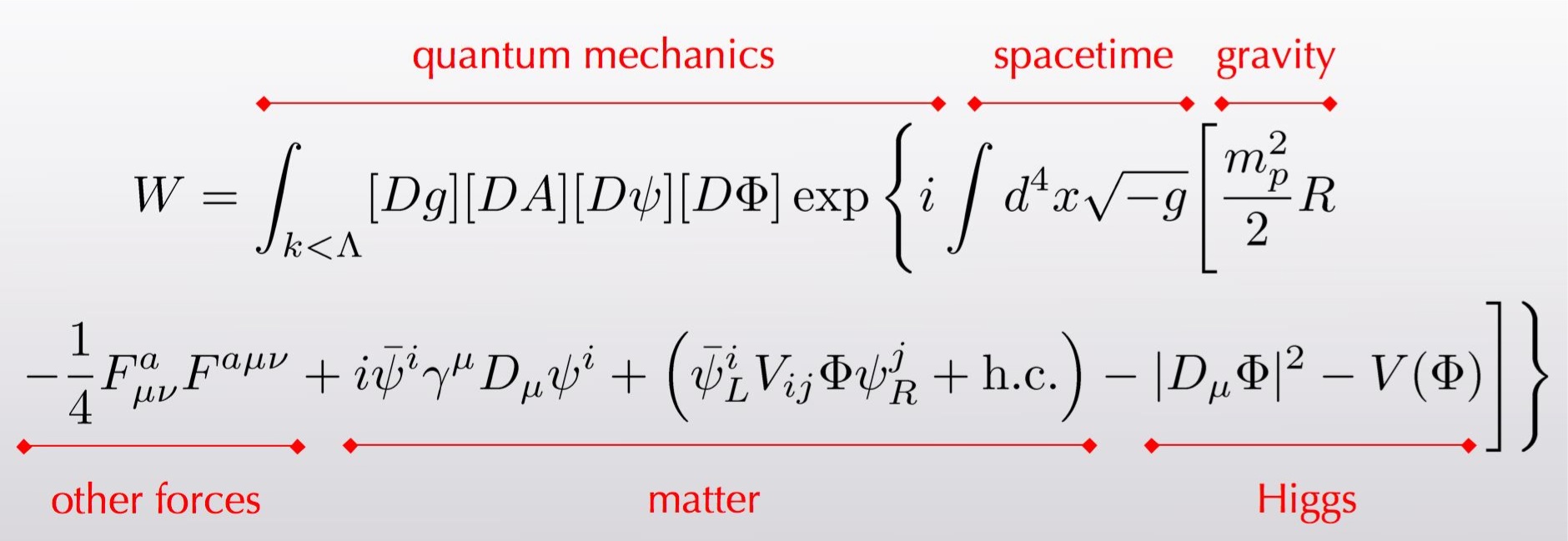The equations of physics, because they are comprehensive (although incomplete) and accurate in modeling our universe, are strong evidence that we live in a material, physical, mechanical universe. From this result we conclude, without needing to know the functions shown below or how to calculate with them, that our purpose is found in our individual lives and not in the overall functioning of the universe.
A common criticism of the above argument is that it is a "fallacy" called "scientism". Actually, the above argument is a good example of an empirical argument and empirical arguments are the strongest possible type of argument. The universe communicates to us how it functions via empirical evidence and it is from empirical evidence that the above equation is derived. Philosophical arguments which rely on assertions of first principles and appeals to intuition are among the weakest type of arguments. Those kind of arguments, which are very common in theology and religion, and are also found in philosophy and outside of any religious context, consist of people talking to themselves about themselves while mistakenly claiming that they are talking about an objective reality outside of themselves. Talk about the transcendent cosmic purpose that is not firmly anchored in our best current understanding of how the universe functions as derived from from physics and biology is more likely than not to be disconnected from reality. Arguments from first principles and intuition can be highly intellectual, but conclusions are not true merely because they are supported by intellectual arguments. Philosophy can be, and is, very valuable provided that it relies upon factual statements about how the universe works that the overall available empirical evidence properly supports.
A common criticism of the above argument is that it is a "fallacy" called "scientism". Actually, the above argument is a good example of an empirical argument and empirical arguments are the strongest possible type of argument. The universe communicates to us how it functions via empirical evidence and it is from empirical evidence that the above equation is derived. Philosophical arguments which rely on assertions of first principles and appeals to intuition are among the weakest type of arguments. Those kind of arguments, which are very common in theology and religion, and are also found in philosophy and outside of any religious context, consist of people talking to themselves about themselves while mistakenly claiming that they are talking about an objective reality outside of themselves. Talk about the transcendent cosmic purpose that is not firmly anchored in our best current understanding of how the universe functions as derived from from physics and biology is more likely than not to be disconnected from reality. Arguments from first principles and intuition can be highly intellectual, but conclusions are not true merely because they are supported by intellectual arguments. Philosophy can be, and is, very valuable provided that it relies upon factual statements about how the universe works that the overall available empirical evidence properly supports.

No comments:
Post a Comment